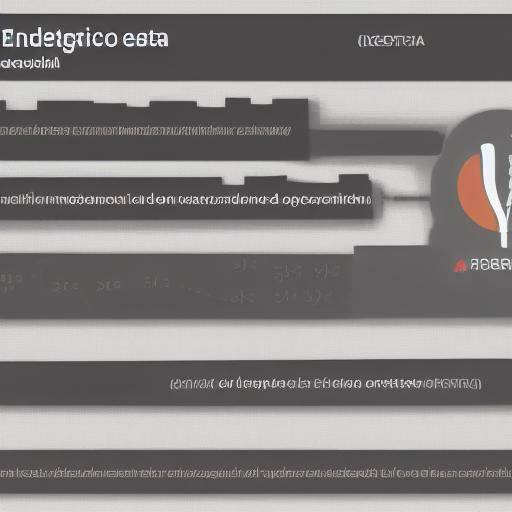
The energy bill is a recurring expense at home, but there are effective strategies that can help you reduce it. In this article, we will explore various energy saving and efficiency methods that you can implement in your home, from simple changes in your daily habits to the adoption of advanced technologies. Find out how to optimize energy consumption and save on your bill!
Introduction
Energy consumption in households is a growing concern due to its impact on the environment and on consumers' pockets. Fortunately, there are several strategies that can contribute to significantly reducing energy spending, while promoting sustainability and efficiency.
In this article, we will provide you with practical advice, relevant data and in-depth analysis on savings, energy efficiency and home application. From the history and evolution of energy-saving strategies to future trends and predictions, you'll get a full insight on how to improve energy efficiency in your home.
History and Background
The concept of energy savings has evolved over time, influenced by technological advances, changes in human behavior and environmental considerations. From the introduction of energy efficiency measures in the Industrial Revolution to the emergence of intelligent systems in the digital era, the history of energy savings is rich and varied.
Environmental awareness and the need to reduce costs have been key drivers of evolving energy-saving strategies. For example, the energy crisis of the 1970s caused renewed interest in energy efficiency, leading to the adoption of stricter standards and regulations in many countries.
The history of energy savings is closely linked to technological innovation and the development of more efficient solutions. From the invention of LED bulbs to the popularization of solar panels, historical trends have shown a growing emphasis on the optimization of energy consumption.
Analysis in Deep
Energy efficiency not only brings economic benefits, but also has a significant impact on environmental sustainability. Studies show that the implementation of energy efficiency practices can reduce greenhouse gas emissions and reduce dependence on non-renewable energy sources.
In addition, household energy savings can result in significant long-term savings. From the installation of efficient equipment to the optimization of consumption management, energy efficiency strategies can provide tangible benefits to owners, as well as a reduction in the carbon footprint.
Comprehensive review
The implementation of household energy saving and efficiency strategies can be adopted in various ways, from improved infrastructure to more conscious day-to-day practices. The installation of certified appliances, optimization of heating use and the implementation of efficient lighting solutions are just a few examples.
It is essential to understand the advantages and disadvantages of each strategy to select the one that best suits the individual needs of the home. Careful evaluation of available options and their long-term impact can result in significant savings and reduced environmental impact.
Comparative analysis
The interrelationship between energy savings, efficiency and home is evident in the multiple ways in which these strategies can be applied in the residential environment. From smart management systems to the automation of consumption controls, modern solutions offer a holistic approach to maximizing energy efficiency at home.
In addition, the comparison of traditional and new approaches can reveal opportunities to improve energy efficiency at home. The combination of proven strategies with the adoption of emerging technologies can lead to more impactful and sustainable long-term results.
Practical Tips and Accessible Tips
For those seeking to implement energy-saving strategies in their homes, there are numerous practical tips that can make the difference. From the silection of electrical appliances to the optimization of lighting use, each individual action contributes to significant collective savings.
Some practical tips include:
- Turn off appliances in waiting mode.
- Use low consumption LED bulbs.
- Take advantage of natural light during the day.
- Improve the thermal insulation of the house.
The implementation of these tips not only reduces energy consumption, but can also result in significant savings in the long-term energy bill.
Ideas and Industry Reviews
Energy efficiency experts provide valuable insights on emerging trends, current challenges and future opportunities in the area of energy savings at home. Their analysis and recommendations can inspire owners to adopt innovative approaches and effective solutions.
Adaptation to a changing environment in the field of energy requires a clear understanding of best practices and the potential of innovative technologies. Industry views can provide guidance on how to navigate the complexities of energy efficiency at home.
Case Studies and Applications in Real Life
Case studies provide concrete examples of how energy saving and efficiency strategies are applied in real residential environments. Reviewing success stories and learning from past experiences can be an invaluable source of information for those seeking to maximize energy efficiency in their own homes.
Analyzing the challenges faced, approaches taken and results achieved in real cases can illustrate the effectiveness and impact of energy saving strategies. These examples offer practical ideas and perspectives on how to overcome common obstacles in implementing energy efficiency measures.
Future Trends and Predictions
The energy efficiency landscape is constantly evolving, with new technologies and approaches emerging to address current and future challenges. Emerging trends, such as home automation and the integration of renewable energies, promise to revolutionize the way we manage energy consumption in our homes.
The future of energy efficiency at home is seen through the widespread adoption of intelligent and sustainable solutions. The convergence of technology and environmental awareness is expected to boost greater innovation and growth in this field, providing exciting opportunities for consumers.
Conclusion
In short, energy savings and household efficiency are critical aspects that not only impact positively on family finance, but also contribute to the preservation of the environment. The implementation of effective strategies can lead to significant savings in energy bills and a reduction in environmental impact.
By adopting conscious practices and harnessing innovative technologies, owners can improve the energy efficiency of their homes and contribute to a more sustainable future. The combination of daily practices with advanced solutions is critical to maximizing energy savings and promoting a more eco-friendly lifestyle.
Frequently asked questions
What is energy saving and why is it important in the home?
Energy saving involves reducing energy consumption, which can benefit both owners and the environment.### What are some simple ways to save energy at home?
There are many simple ways to save energy at home, such as shutting down appliances in waiting mode, using low consumption LED bulbs and taking advantage of natural light during the day.
How can I choose the most efficient appliances in energy terms?
When selecting appliances, look for energy efficiency labels that provide information about energy consumption. Opt for appliances with energy rating A+++ for optimal results.
What is the importance of energy efficiency for the environment?
Energy efficiency has a significant impact on reducing greenhouse gas emissions and preserving natural resources, which contributes to mitigating climate change and environmental degradation.
Why is it essential to optimize energy efficiency at home?
Optimizing energy efficiency at home not only leads to significant savings on the energy bill, but also promotes sustainability and reduces environmental impact, benefiting future generations.
What role do smart technologies play in household energy efficiency?
Smart technologies, such as programmable thermostats and energy management systems, play a crucial role in providing accurate control over energy consumption, resulting in savings and greater efficiency.
How can I plan an energy renewal in my home?
Planning for an energy renewal at home involves the evaluation of the existing infrastructure, the identification of improvement areas and the selection of specific solutions, such as thermal insulation, efficient lighting systems and low consumption appliances.
We hope that these answers have cleared your doubts and provided you with valuable information on how to reduce the energy bill in your home!
In conclusion, energy savings and household efficiency are fundamental aspects that not only have a positive impact on family finance, but also contribute to the preservation of the environment. By adopting conscious practices and harnessing innovative technologies, owners can improve the energy efficiency of their homes and contribute to a more sustainable future. The combination of daily practices with advanced solutions is essential to maximise energy savings and promote a more eco-friendly lifestyle.
Ultimately, the implementation of effective strategies to reduce the energy bill not only benefits at the individual level, but also has a positive impact on the community and the planet as a whole.






















































